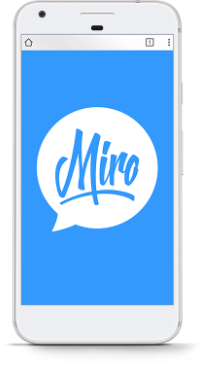The Best Types of Articles for Visitors and Google
Articles need to be informative, fun or engaging, it pays to take time to develop a catchy title and interesting article. Examples could include:
- Legal information, changes in the legal profession, recent examples of interesting cases, topical legal news
- Guides, ‘how to’s’ and information that assists people
- Fun information about the Smith Jones team, charity works etc.
Identifying Keywords and Questions
To create the most popular content you should write articles based on common customer questions. Google likes to rank content that helps people highly in its search rankings. To do this we use different approaches;
- By analysing reviews on the site and in third party review sites like Trustpilot – Are there common questions that arise?
- In a similar way you can analyse social media channels to look for common questions to answer
- Asking what questions the customer service team receive is another good resource
- The Adwords Keyword Planner Tool is a free tool from Google that allows you to run searches on keywords and identify common questions and popular terms. Miromedia can demonstrate this.
A Simple Guide to Creating Optimised Copy
In order to rank well for your chosen keywords, your article will need to contain those keywords and it pays to include them in certain places. The below guide will assist you with creating well optimised article copy.
- Each article should have a focus of no more than 1 keyword or phrase.
- Where possible there should be at least 300 words of copy in the article. As a rule the more relevant copy you can have about the subject of that keyword the better.
- The keyword for that web page should ideally appear 3 times in every 300 words of copy.
- The keyword should appear in the main header (H1) of the article once.
- If possible the keyword will start the first sentence, of the first paragraph, since search engines place more importance on keywords near the top of the page than those keywords near the bottom.
- It is important to use synonyms of the term you are looking to rank for
- Most importantly the article should read naturally and the target term should not look stuffed into the content in any way.
Writing a Catchy Title
Writing a punchy and catchy headline in vital. Ensuring you have included a tantalising hook in your title ensures active consumption. Below are some top tips:
- Trigger Words – Try using words like ‘secret’, ‘free’, ‘incredible’ and ‘unexpected’.
- Urgency – People need to feel like they can’t miss your article and read it today.
- FUD – Fear, Uncertainty, Doubt. Playing on these negative emotions of peoples uncertainty can really motivate potential readers.
- Beg the Question – ‘Can You Increase Your Sites Traffic by 50% With This Clever Trick?’ It’s a sure fire thing that people are going to want to find out!
- Curiosity – Curiosity is one of the most effective weapons for impactful headline writing.
- Be Emotional – Emotive headlines get read more.
- Sensation/Controversy – Sensational headlines get read more.
- Scratch the Itch – Headlines that offer a solution or cure to an emotional problem are more effective too.
- Customise – Customise the headline for your audience and platform. Think about your audience and think about your medium. It is vital to tailor your messages for the people you want to attract.
- Aspiration – Headlines should offer a key to a more an aspirational life.
Duplication Tips
Sometimes it makes sense to simply copy content from other sites/articles and place it in your article. However duplication is a big problem for search engines and articles that plagiarise other copy will struggle to perform in the rankings. For this reason we would strongly recommend you ‘rewrite’ any copy taken from other sites and articles.
- No Copy and Pasting: Taking content from other websites will hugely affect your overall page rank, often causing it to rank badly in search results.
- Brand Voice: Completely unique content allows you to personally tailor the exact tone you’d like your brand to represent.
- Stand Out: Browsing competitor sites for inspiration is fine, however don’t be tempted to borrow too heavily from their content.
- Google Search allows for the simple tracking of duplicated content on external sites. Simply copy and paste a line from your site and enter into a search field with speech marks (“); this will instruct Google to search the Web for other exact uses of the same content.

